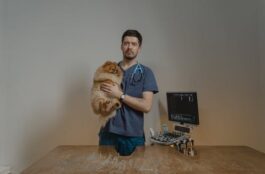
Our pets are precious family members, deserving the best care possible. When they need surgeries, be they simple or complex, choosing the right veterinary surgeon is critical. This article aims to guide you through hiring an expert surgeon for your beloved pet, considering all the vital factors like qualifications, cost, and postoperative care.
Understanding the Background of Veterinary Surgeons
The role of a veterinary surgeon goes beyond the regular care and ailment treatments that general veterinarians provide. They handle the more advanced medical cases, conducting complex surgical procedures and intricate treatments.
- The Role of a Veterinary Surgeon: They specialize in diagnosing and treating serious medical conditions in animals, typically involving surgeries. These experts perform several operations, such as orthopedic surgery, spinal surgery, cancer surgery, and more.
- Educational Requirements for Veterinary Surgeons: Becoming a veterinary surgeon isn’t a walk in the park. It requires serious commitment and years of education. This includes a bachelor’s degree, a veterinary degree, and often a master’s or Ph.D. Additionally, they must pass a series of licensing exams before practicing.
- The Specialization Areas in Veterinary Surgery: The world of itinerary surgery is diverse, with surgeons specializing in different areas- orthopedics, neurosurgery, oncologic surgery, and soft tissue surgery. Depending on your pet’s needs, you might need to hire a surgeon with a specific specialization.
Factors to Consider in Choosing Your Veterinary Surgeon
Choosing an expert veterinary surgeon is a daunting task, especially when your pet’s well-being is at stake. Consider the following factors when making your decision.
- The Surgeon’s Qualifications and Experience: Look for a surgeon with the necessary qualifications and enough experience handling similar cases to your pet’s. Ask about their success rate, complications, and how they handle unexpected situations during surgery.
- Accreditation and Licensing: It’s crucial to ensure the veterinary surgeon is board-certified and holds the necessary license to practice in your state. This ensures they have the necessary knowledge and skills to perform surgeries.
- Specialization in Required Surgery Type: If your pet needs a specific type of surgery, select a surgeon who specializes in that field. For instance, if your pet requires orthopedic care, choose a surgeon specializing in orthopedic surgery.
A Visit to the Veterinary Clinic
Before making your final decision, visit the veterinary clinic to get a feel for the environment where your pet will be treated.
- Assessing Cleanliness and Hygiene: A clean and hygienic environment is crucial in any medical setting, including a veterinary clinic. It greatly minimizes the risk of postoperative infections.
- Analysis of the Staff’s Behavior: Note how the staff interacts with humans and animals. They should be courteous, professional, and compassionate.
- Availability of Advanced Machinery and Equipment: Ensure the clinic has the latest surgical equipment and technology. This increases the chances of a successful surgery and quick recovery.
Postoperative Care and Support
Your pet’s care shouldn’t end immediately after the surgery is over. Quality postoperative care is essential to ensure a quick and smooth recovery for your pet. Here’s what comprehensive postoperative care and support should entail:
- Pain Management: Proper pain management protocols should be established following the surgical procedure to ensure your pet’s comfort. This may include medications and alternative therapies like acupuncture or cold laser therapy. Ensure the veterinary surgeon explains the pain management plan in detail.
- Wound Care: Wound care involves cleaning and bandaging the surgical incision site to prevent infections and enhance healing. Find out if the surgeon gives instructions for at-home wound care or if regular visits to the clinic are necessary for dressing changes.
- Dietary Recommendations: Post-surgery, your pet’s diet may need to be adjusted to aid recovery. Some may need a special diet to give their bodies the nutrients necessary for healing. Your veterinary surgeon should provide detailed dietary recommendations.
- Exercise and Mobility Limitations: Depending on the type of surgery, your pet may need to limit their physical activities to certain degrees to prevent injuries or complications. The surgeon should give clear guidelines on what your pet can and cannot do during the recovery phase.
- Rehabilitation Services: If your pet had a major operation, they might need rehabilitation services like physiotherapy to get back on their feet. Ensure the clinic offers such services or can recommend a reliable provider.
- Regular Follow-up Visits: Scheduled follow-ups are important to monitor your pet’s healing progress, check for any signs of complications, and adjust the treatment plan if necessary. Ensure the veterinary surgeon sets a clear follow-up schedule.
- Communication with the Veterinary Team: Make sure the vet’s office is open to communication for any questions or concerns you might have postoperatively. Good communication ensures that any issues are dealt with promptly, ensuring a smoother recovery for your pet.
Cost of Veterinary Surgery
Surgery cost could be a deciding factor, but it shouldn’t compromise the quality of care your pet receives.
- Understanding the Costs Involved: Be sure to get a detailed breakdown of all costs involved in the surgery. This includes consultation fees, the cost of surgery, aftercare fees, and any additional costs that might come up.
- Options for Financial Help: If the cost is a concern, ask if the clinic offers payment plans or financial aid. Some clinics work with third-party organizations that provide low-interest loans for pet healthcare.
Second Opinion
A second opinion can help make the best decision for your pet’s healthcare.
- The Importance of a Second Opinion: A second opinion can provide additional insights, confirm the initial diagnosis and treatment plan, or suggest alternative treatments.
- Seeking a Second Opinion: If something doesn’t feel right or if you are uncertain, do not hesitate to seek a second opinion. Always remember that it’s your right as a pet owner to do so.
Conclusion
Choosing an expert veterinary surgeon for your beloved pet is never an easy task. It requires careful consideration and thorough investigation. Remember that your pet’s welfare is central to this decision and should always come first. With the right guidelines, finding the right veterinary surgeon can be less daunting and more productive.

